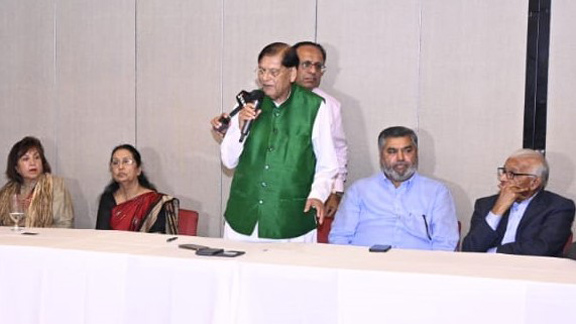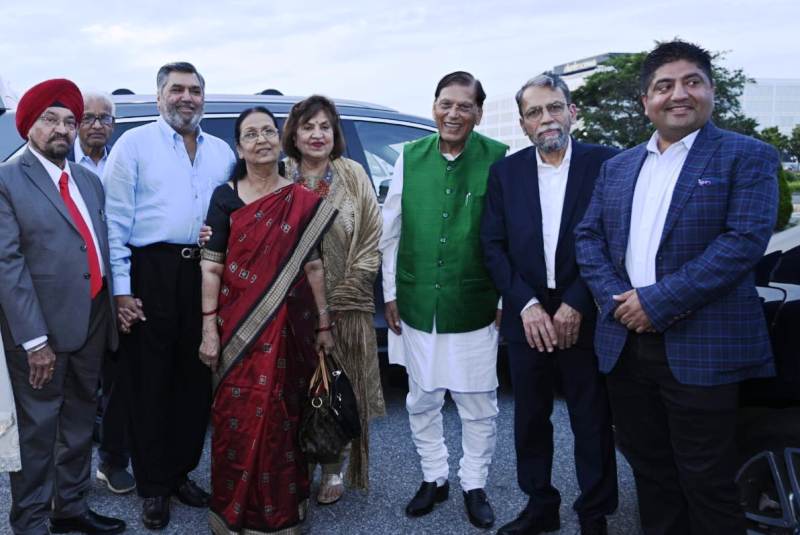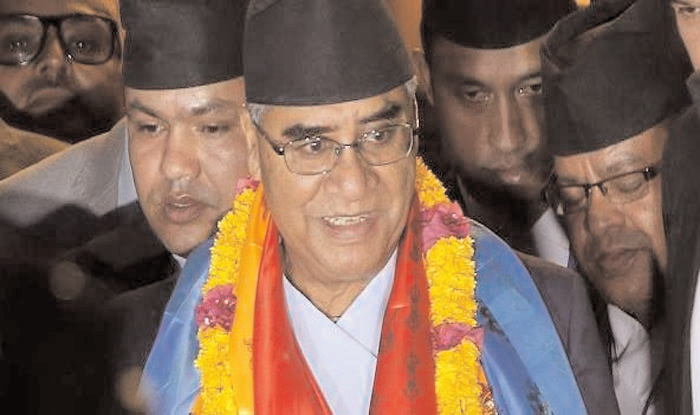

GARDEN CITY, NY (TIP): Prominent Indian American community leaders welcomed living legend Dr Bindeshwar Pathak at a meet-and-greet on June 19 in Long Island. A Padma Bhushan awardee, Dr Pathak is famous as the founder of Sulabh International, the largest NGO in India, which has built over 9,000 public toilets across the country.
Co-hosts of the dinner event at Mint restaurant near Roosevelt Field Mall included community leaders Pam Kwatra, Kamlesh Mehta, Eric Kumar, and Raj Wadhwa. Eminent speakers included Ragini Srivastava, Town Clerk, Town of North Hempstead, entrepreneur and philanthropist Mohan Wanchoo, The Indian Panorama Chief Editor Prof Indrajit Singh Saluja, President of AAPI-QLI Dr Vinni Jayam, Shanti Fund founder Arvind Vora, Dr Jagdish Gupta, Jagdish Sewhani and senior community leader Dr Narinder Kukar.
Eric Kumar as emcee drew the line from the pathfinding work of Dr Pathak to eradicate scavenging to Prime Minister Narendra Modi’s Swachch Bharat campaign. Ellis Island Medal honoree Pam Kwatra mentioned that the seed capital for Dr Pathak’s social enterprise came in the form of jewelry from his wife, Amola, who was present at the event. Amola Pathak was felicitated by Nimmi Mehta and Totee Wadhwa. Prominent guests who gave Dr Pathak a standing ovation included Harish Thakkar, Jaspreet Mayall, Ashish Srivastava, Parveen Chopra, Shomik Chaudhuri, Jay Raj, Dr. Manju Kukar, Ila Vora, Taranbir Kaur and Prasad ji. In his speech, Dr Pathak, a sociologist with a PhD from the University of Patna, acknowledged that his inspiration came from Mahatma Gandhi. A recipient of the Gandhi Peace Prize in 2016, Dr Pathak was on the 5-member jury this time which last week selected Gita Press, Gorakhpur (the world’s largest publisher of Hindu religious books since 1923) for the same prestigious award by the Government of India.
Dr Pathak’s accomplishments span the fields of sanitation technology, social enterprise, and healthcare education for millions of people in India, serving as a model for NGO agencies and public health initiatives around the world.
Born a Brahmin, he has worked tirelessly for the human rights of the manual scavengers who clean dry latrines, come from the lowest stratum of India’s caste-based system, and are mostly women. His actions aimed at rehabilitating them and providing alternative employment through skill development.
The most visible sign of his work is the Sulabh toilets in all major public places in India including at 36 railway stations which are used by approximately 20 million people every day.





Be the first to comment